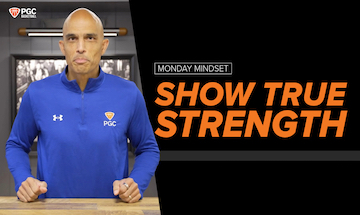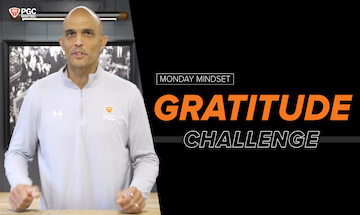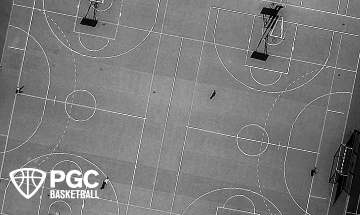How to Coach Execution over Conditioning
Basketball coaches have different styles. There are many ways to accomplish the same goal. I do not presume to know the very best ways to coach. But I hope many coaches will find the following somewhat unusual approach to be useful.
EMPHASIZE EXECUTION, NOT CONDITIONING
Going into any season, it is customary for many coaches to tell their teams, “We can’t be sure we will be the most talented team, but we can be sure that we will be the best conditioned team.”
Vince Lombardi, the famous former football coach of the Green Bay Packers, has influenced a lot of people in the sports world with his well-known line:
FATIGUE MAKES COWARDS OF US ALL.
Aware of this truth, many coaches are determined to have well-conditioned teams that will be tough under pressure. Therefore, they go on to tell their teams how hard they are going to have to work—”harder than you’ve ever worked before!”—and how they need to be prepared physically to pay the price of champions.
Initially this sounds good, and probably tens of thousands of coaches use this approach to begin a season. Personally, I disagree with it. I don’t think this approach is bad; I just think a different approach is better.
Read More: How to Get into Basketball Shape
MAKE LAZINESS WORK FOR YOU
Begin with the notion that just about all human beings on this planet—star athletes included—are lazy. Naturally, there are superstars like Jerry Rice of the San Francisco 49ers who became famous for his demanding workout routines; and there may be millions of athletes who overcome laziness and learn to get their bodies in terrific shape. But the basic fact remains: people are lazy. Therefore, I think it makes sense to appeal to an athlete’s laziness in a special way and, in the process, to ignite his competitive juices as well as his aspirations.
In a nutshell, I believe in scrimmaging during each practice and in approaching your athletes in this way as you begin the scrimmaging/teaching process: “This season, I am not concerned about having the best-conditioned team in our league. We are a basketball team, not a cross-country team. I don’t think it really matters whether or not we can outrun them. We aren’t racing them, we are playing basketball games with them, and we want to finish the games with more points than they get. As a result, I am not so concerned with how well you can run as I am with how well you can execute, how well you can do the things we need to do to score baskets and stop them from scoring baskets.”
Of course, I know that being in shape and running well is an important part of basketball, but I want the team to know that I have no interest in making them suffer just to show that I am a good basketball coach. I am interested in them playing terrific basketball. Period. My emphasis is entirely on terrific basketball.
As a result, my teams will not run sprints after practice. Many of the teams I played on saved energy throughout the practice, knowing we would need that energy at the end for the demanding “gut checks” that we experienced during final sprints “to see who really wants it.”
As a coach, I want that energy used throughout the practice on things I think are most important. Plus, I don’t want any of my players’ mental energy used on thinking about sprints. I want all of their energy focused on performance. So my practices—and each drill or game we play—all have this sort of introduction:
“We will do this next thing seeking perfect execution. Each time you do it wrong, you will hear a special whistle. When you hear that sound, I expect all of you to sprint to the line (at one end of the court) to find out what was wrong.”
INTELLIGENT, EVERY-TIME REINFORCEMENT
You don’t want your players getting the feeling you always manage to come up with something new that they did wrong. You want them thinking they can win; they can get out of running by doing things that are possible. In other words, I don’t think you can demand that they do forty-six things well, or else they get punished. I think it is wise to begin with one or two things on offense and one or two things on defense, just a few things they can keep in mind and concentrate on executing perfectly—and just a few things you can keep in mind to see and correct every time.
On offense, you can expect that they will take only good shots. You can expect that they will take no unnecessary dribbles. You can expect that they will throw no errant passes. You can expect that they show only positive emotions on the court during play.
On defense you can expect them to get a hand in every shooter’s face, you can expect them to block out and move toward the ball for rebounds, and you can expect them to move their feet on defense and avoid stupid reaching fouls. In the early stages, it may be best for you to do only one at a time.
Scrimmage and pay full attention only to shot selection on offense and seeing the ball on defense. When you are able, as a coach, to see those things every time—and to whistle and correct every failure—you are ready to add a point or two at each end.
Your consistency is crucial. If you notice a bad shot one time but then let bad shots fly unnoticed the next two times, your players will quickly recognize your inconsistency and the effectiveness of the line game will diminish. But if you are able to consistently correct what you consider most important, your players will quickly learn to do those things you consider most important, consistently.
—Excerpted from the book, “Running the Show”
Related Articles
Monday Mindset: Show True Strength
What if the key to true strength isn’t hiding your flaws—but sharing them?
Monday Mindset: Gratitude (Challenge)
Want a simple way to instantly shift your mindset—and your mood?
Monday Mindset: Why Tyrese Haliburton is So Special
Here’s what I’ve come to learn and respect so much about NBA All Star and PGC Grad, Tyrese Haliburton…
About PGC
PGC Basketball provides intense, no-nonsense basketball training for players and coaches. Our basketball camps are designed to teach players of all positions to play smart basketball, be coaches on the court, and be leaders in practices, games and in everyday life.
We combine our unique PGC culture with a variety of teaching methods and learning environments to maximize the learning potential of those that attend our sessions. In addition to spending 6-7 hours on the court each day, lessons will be reinforced through classroom sessions and video analysis.
Our goal at PGC is to empower you with the tools to fulfill your basketball dreams, while also assisting you in experiencing the joy of the journey.
To learn more about PGC Basketball, including additional basketball training tips and videos, visit our YouTube Channel or find us on Facebook, Instagram, and Twitter.













Share This Post